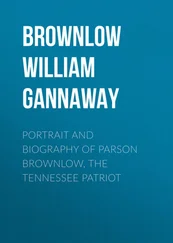Second, while the power of Parliament was still tempered by the authority and patronage of the Crown, it was the only forum in which the politicians of the time engaged with each other and staked out their positions. As a result, prowess in parliamentary debate was a most valuable political skill. The elder Pitt could never have advanced to high office without such skill since he lacked both money and the patronage of the King. The second Earl Waldegrave, chief confidant of George II, wrote in his memoirs:
Mr. Pitt has the finest genius, improved by study and all the ornamental parts of classical learning … He has a peculiar clearness and facility of expression; and has an eye as significant as his words. He is not always a fair or conclusive reasoner, but commands the passions with sovereign authority; and to inflame or captivate a popular assembly is a consummate orator. 9
Having finally thrown in his lot with King George II in 1746 in return for a place in the government, Pitt was happy to use his oratorical skills to advance arguments sometimes the exact opposite of those he had propagated in opposition, a phenomenon well known to this day. He had made his name in opposition denouncing the payment of subsidies for Hanoverian troops even to the point of saying he would agree to be branded on the forehead as a traitor if he ever supported the idea, but once in office he swiftly switched sides on the issue with ‘unembarrassed countenance’. 10
It is a tragedy for historians that parliamentary proceedings at the time of the elder Pitt were not officially recorded. Indeed, it was expressly forbidden to publish speeches delivered in Parliament, since it was thought that this would lead to popular pressure interfering with the judgements of an independent Parliament. By the time of the younger Pitt these matters were treated very differently, but this restriction illustrates the limited role of public opinion in the British constitution of the mid-eighteenth century.
Third, while his long career encompassed a fair amount of opportunism and inconsistency, the elder Pitt undoubtedly developed and held to a broad philosophy of how Britain should operate in military and foreign affairs. Although he would have called himself a Whig, the term Tory being largely pejorative and still heavily associated with suspected Jacobite sympathies, Pitt was usually distinct in his views from the great figures of the Whig aristocracy. He was, for instance, much more likely than them to quote popular support as a factor in favour of his views, something that they would have looked on as the folly of the mob. Pitt’s views could be categorised as ‘Patriot’ or in ‘the Country Interest’, emphasising the views of a nation wider than the Whig oligarchy, and sometimes they were frankly Tory, such as opposing the existence of any significant standing army. Such opinions were associated with hostility to Continental entanglements and suspicion of the power of the Crown, two opinions woven together by the fact that the King was simultaneously but separately the ruler of Hanover. *Pitt believed in a maritime approach to foreign affairs, one which he brought to devastating fruition in the Seven Years’ War and set out at its simplest in the Commons in the 1740s:
I lay it down, Sir, as a certain maxim that we should never assist our allies upon the continent with any great number of troops. If we send our troops abroad, it should be rather with a view to improve them in the art of war, than to assist our allies … The only manner, therefore, in which we ought to support her [Austria] and our other allies upon the continent is with our money and our ships. My reason for laying this down as a maxim is, not only because the sea is our natural element, but because it is dangerous to our liberties and destructive to our trade to encourage great numbers of our people to depend for their livelihood upon the profession of arms … For this reason, we ought to maintain as few regular soldiers as possible, both at home and abroad. Another argument on this subject presents itself: our troops cost more to maintain them than those of any other country. Our money, therefore, will be of most service to our allies, because it will enable them to raise and support a greater number of troops than we can supply them with for the same sum. 11
Throughout his career the elder Pitt emphasised the importance of overseas trade, an issue which regularly made him the darling of the City of London. To preserve and expand that trade, he believed in naval supremacy, the retention and expansion of the colonies, particularly in North America, and a firm stance against the Bourbon monarchies of France and Spain. Long after his death, elements of the same beliefs in trade and naval power would be discerned within the policies carried out by his son as Prime Minister.
Fourth, the elder Pitt cultivated a detachment from party as a healthy attribute in itself, along with a further detachment from the financial rewards and perquisites of office. Paymasters had traditionally made huge personal gains, usually by investing for their own account the balances of public money for which they were responsible, and taking a commission on foreign subsidies. *It was to the astonishment of other politicians and the delight of a wider public that on his appointment as Paymaster, Pitt lodged the balance of public money with the Bank of England and forwent his personal commission on a subsidy to Sardinia. It was as a result of such forbearance, as well as of his general political stance, that he was long regarded as different from other politicians, less corrupt and self-interested. Coupled with his apparent lack of interest in taking a title, this attribute led to him becoming known as ‘the Great Commoner’. It was also as a result of these sacrifices that his income rarely kept up with his lavish domestic expenditure. The huge debts which this produced seldom seemed to trouble him, a trait faithfully reproduced in his famous son.
The elder Pitt spent a large proportion of his life visibly ill. He suffered from a wide range of ailments, all of which were then associated with gout; he was frequently lame and also suffered from ‘gout in the bowels’ and similar disorders. For him to give a speech in the Commons with a walking stick and a large part of his body wrapped in flannels was not uncommon. He would often retreat to his bed even at times of crisis, as this anecdote from the time of the Seven Years’ War demonstrates:
Mr. Pitt’s plan, when he had the gout, was to have no fire in his room, but to load himself with bedclothes. At his house at Hayes he slept in a long room; at one end of which was his bed, and his lady’s at the other. His way was, when he thought the Duke of Newcastle had fallen into any mistake to send for him and read him a lecture. The Duke was sent for once and came when Mr. Pitt was confined to bed by the gout. There was, as usual, no fire in the room; the day was very chilly and the Duke, as usual, afraid of catching cold. The Duke first sat down on Mrs Pitt’s bed, as the warmest place; then drew up his legs into it, as he got colder. The lecture unluckily continuing a considerable time, the Duke at length fairly lodged himself under Mrs Pitt’s bed clothes. A person, from whom I had the story, suddenly going in, saw the two ministers in bed, at the two ends of the room, while Pitt’s long nose and black beard unshaved for some days, added to the grotesqueness of the scene. 12
In 1760, the accession of George III, grandson of George II (and son of Prince Frederick, who after years of plotting for his accession with opposition figures, spoiled every calculation by dying before his father), set in motion a chain of events which led to Pitt’s departure from government. Favouring a more hardline approach to Spain than his colleagues would accept, Pitt wished to continue in office only on the basis of assured control of the government, an ambition irreconcilable with the new King’s advancement of his great favourite, the Earl of Bute.
Читать дальше












